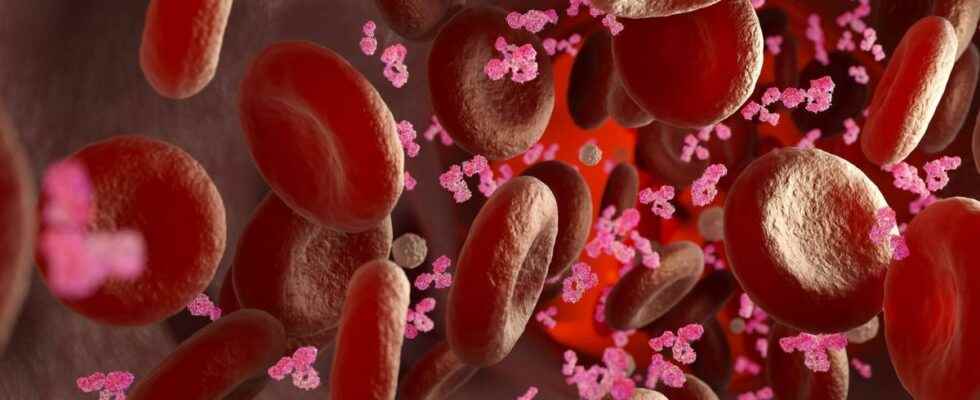Published on
Updated
Reading 2 mins.
Therapeutic antibodies are the medicine of the future, but they still need to be produced in Europe, says Jacques Volckmann, head of research and development for France at the French laboratory Sanofi.
Sanofi, like many laboratories, has among its treatments marketed or in development therapeutic antibodies. What is it about ?
To understand the origin of antibodies, we must go back to the way our body works. The immune system has specialized cells that produce these large molecules: our antibodies, which are proteins. It is one of the body’s means of defending itself against attacks, bacterial or viral for example. The body sends these small +missiles+ which will block and prevent the spread of a virus for example.
For about thirty years, we have succeeded in manufacturing specific antibodies in the laboratory. We take the DNA of the desired antibody and clone it into a mammalian cell which will produce it. The improvement of molecular biology technologies has accompanied the development of these techniques. There are many applications in immunotherapy, oncology and infectiology.
In recent years, we can also make multispecific antibodies: they can simultaneously attach to several antigens involved in the disease we want to fight.
Without forgetting the so-called “ADC” antibodies (Antibody Drug Conjugates), the “armed” antibodies. In this case, we develop an antibody that recognizes a specific antigen of a tumor cell, we attach an anti-cancer molecule to it, and the antibody will bring it only where the tumor is. The fields of application are immense.
Therapeutic antibodies have a high cost, how is this explained?
The production of a protein is complex. We start from a DNA sequence, that is to say the genetic code of the protein of the antibody. This sequence is integrated into a mammalian cell, it is cultured and the multiplied cells will then produce the antibody. Then, this antibody is purified, this gives the active raw material.
These are long, expensive and complicated processes, which use very specific and expensive equipment, expensive culture media. All this for relatively low returns. The first productions had a yield of the order of 0.1 gram of antibody per liter of culture. Now, the yield is around 1 g, even 10 g per liter. With the same factory, we produce 100 times more than before. In the next ten years, there will inevitably be improvements in yields.
A very small proportion of the antibodies used in France are produced in France. Is this an important issue?
In our research and development portfolio, 70% of projects are biological molecules, including a significant portion of antibodies. It’s not just at Sanofi. We have gone in a few years from a portfolio of drugs produced by chemistry to biological molecules.
They must be produced, and therefore have the production capacity. This is a major challenge for France. Many of the future drugs will be biological products, yet our network of bio-production sites is less developed than in other countries. If we are unable to produce these bio-medicines, at least at European level, it will be more complicated to have access to them in the event of a crisis in particular.
